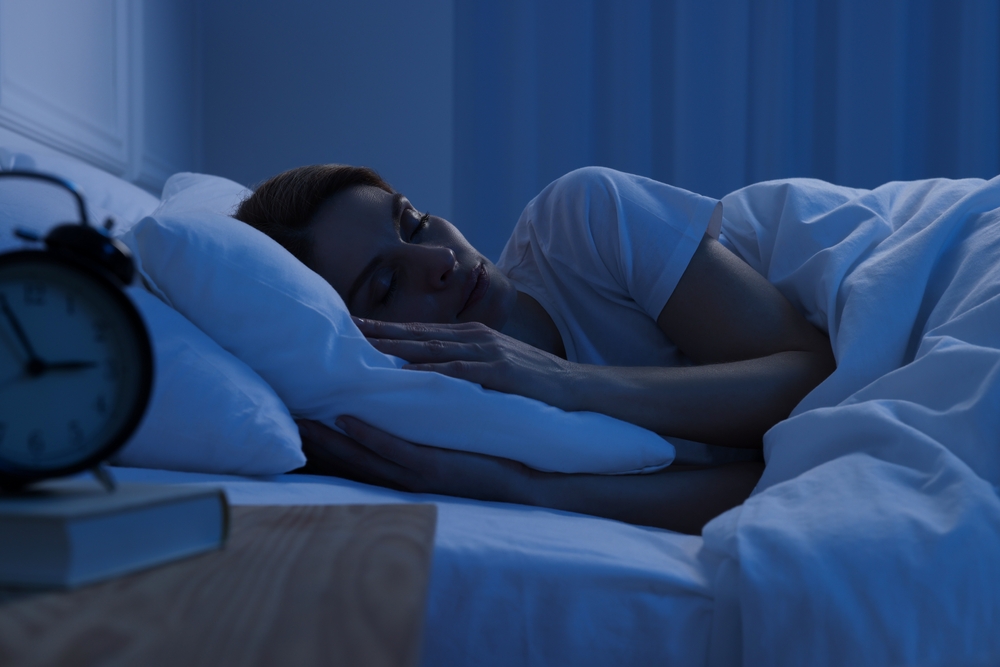Sleep’s Surprising Role in Strengthening Long-Term Memory
Posted on Categories Discover Magazine

One of the most important parts of living a healthy lifestyle is getting a good night’s sleep. Quality sleep can prevent illness, reduce stress, and enhance cognitive function, just to name a few.
A research team working with the Baycrest Corporate Centre for Geriatric Care has now added a new benefit to the list: unlocking the brain’s ability to sort memories. According to a study published in Nature Human Behaviour, sustained deep sleep not only safeguards against memory decline but also increases the brain’s ability to process memory.
Sleep and Long-Term Memories
It’s long been known that the quality of our sleep is directly related to our cognitive function. These new findings strengthen this connection and are the first to uncover that sleeping not only assists in making memories but can enhance our memories, too.
The memory enhancement revealed through this study is what’s known as sequential memory. This involves remembering the events of our lives in the correct order in which they happened. Being able to reminisce about the details of your wedding day or recall a tumultuous encounter with a friend is all thanks to sequential memory.
According to researchers, even a single night of deep sleep can have long-lasting effects on sequential memory.
“The benefits of sleep on memory are powerful; just one night makes a difference that persists over a year,” said Brian Levine, Senior Scientist at the Rotman Research Institute, part of the Baycrest Academy for Research and Education, in a press release.
Read More: Understanding Memory Recall and Storage in the Brain
Studying Memory and Sleep
Typical memory studies often involve asking participants to memorize items, like words and pictures, within a controlled lab setting. This new study, run by Levine and assisted by Rotman graduate students, differed from the norm and involved a unique approach to studying memory.
Instead of memorizing cue cards of words and pictures, participants were immersed in a real-world experience. They were given a 20-minute audio-guided tour of artworks displayed around Baycrest, a research and teaching hospital located in Toronto, Canada.
After completing the tour, participants had their memory of the tour tested. They were asked questions about the physical features of the artwork and the order in which the artwork was shown. These questions were asked five different times over a span of one hour to 15 months after the tour.
The whole experience was then repeated on a second group of participants, with some tweaks. The new group was randomly divided into two subgroups, known as the “sleep group” and the “wake group.” The wake group completed the tour and their first memory test in the morning, then repeated that same test in the evening after a day of regular activities.
For the sleep group, they completed the tour and their first test in the evening, then had their second memory test in the morning after a night of electroencephalographic (EEG) brain-monitoring sleep in a sleep lab. Both groups also participated in the same memory tests one week, one month, and 15 months after the initial tour.
Long-Term Memory Recall
The researchers found that the sleep group had an evidently higher performance in sequential memory than the wake group, even after 15 months. This suggests that a single night of sleep significantly enhances long-term brain function and memory recall.
The results of this study help solidify the importance of quality sleep and could help provide insight into the potential cause of memory changes in dementia patients.
“While our memory for features such as object size and color declines over time, sleep can improve our memory for event sequence,” Levine said in a press release. “This study deepens our understanding of how critical sleep is for integrating experiences into memory.”
Read More: Lack of Sleep Could be Causing an Increase in Mental Health Disorders
Article Sources
Our writers at Discovermagazine.com use peer-reviewed studies and high-quality sources for our articles, and our editors review for scientific accuracy and editorial standards. Review the sources used below for this article:
As the marketing coordinator at Discover Magazine, Stephanie Edwards interacts with readers across Discover’s social media channels and writes digital content. Offline, she is a contract lecturer in English & Cultural Studies at Lakehead University, teaching courses on everything from professional communication to Taylor Swift, and received her graduate degrees in the same department from McMaster University. You can find more of her science writing in Lab Manager and her short fiction in anthologies and literary magazine across the horror genre.